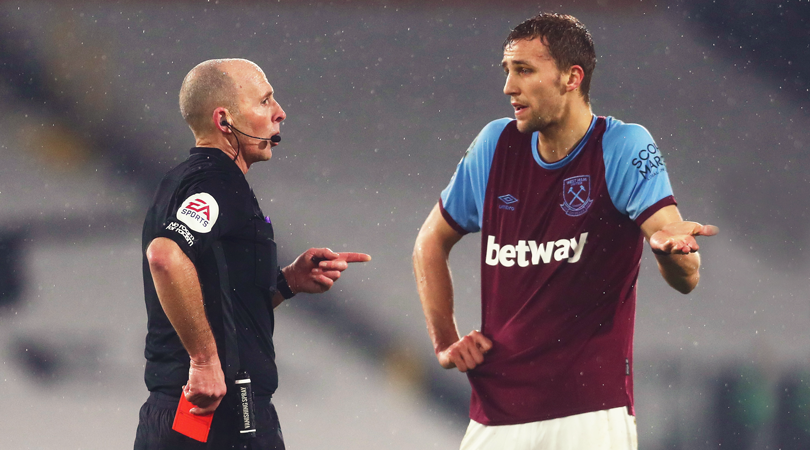In defence of the referee: what ex-pro pundits are getting wrong
Referees are coming under more criticism lately – but are ex-players really right to suggest they know better?

“Have you ever played the game?”
It’s a familiar refrain to all those involved in football. The players and coaches bark it at the slightest indication of a decision going against them. The supporters bellow it from the stands or, in this day and age, from the sofa. The referees and assistant referees roll their eyes every time they’re obliged to listen to it.
It’s the go-to means for people to rationalise what they don’t like or don’t understand. And it’s not limited to the lower reaches of the football pyramid.
“Referees do not understand football,” tweeted an embittered Matt Le Tissier in response to Mike Dean and VAR Graham Scott’s decision to dismiss Southampton’s Jan Bednarek for denial of an obvious goalscoring opportunity against Manchester United, as if only a 15-year Premier League veteran like him could attempt to fathom the game’s complexity.
Only a few days later, when Mike Dean showed a red card to West Ham United’s Tomas Soucek for violent conduct against Fulham – this time in consultation with Lee Mason at Stockley Park – the refrain seemed to be louder than it’s ever been. Perhaps emboldened by the comments of Le Tissier and others, anyone to ever kick a penny floater around the garden with the dog felt entitled to take to Twitter and express a similar view.
"We need a response. This 𝙝𝙖𝙨 to be rescinded."🟥 A lot has been said about Tomáš Souček's red card against Fulham.Here's @rioferdy5 and @GlennHoddle's take on the incident 👇 pic.twitter.com/zRNPS73cczFebruary 7, 2021

The upshot of all of the above is clear enough. There’s an idea that those who’ve played the game for a long time and at a high level would make better referees. What’s not clear is the evidence on which this idea is based. You wouldn’t explain the number of penalties conceded by David Luiz by saying he’s never refereed the game, so why would you use the same reasoning in reverse?
At best, the widespread criticism of a lack of playing experience among top-flight referees is misguided. At worst, it’s nonsensical. The football equivalent of saying you’d make a good chef because you’ve eaten in a lot of restaurants. There’s even science to back it up.
Get FourFourTwo Newsletter
The best features, fun and footballing quizzes, straight to your inbox every week.
Some 15 years ago, a group of researchers at the University of Leuven came up with an experiment pitting a group of elite referees on FIFA’s International Referee List against a group of players at top clubs in Belgium. The groups were shown videos of tackles and asked to choose between ‘no foul’, ‘free-kick’, ‘free-kick followed by yellow card’ or ‘free-kick followed by red card’.
The correct decision was determined by a panel of experts at FIFA prior to the experiment, and the referees arrived at it about 80% of the time. Not perfect, but who is? In contrast, the players only arrived at the correct decision about 55% of the time.
CHELSEA Thiago Silva exclusive: How Frank Lampard helped woo the centre-back to Chelsea last summer
Given a referee is thought to make more than 200 decisions in an average game, can you imagine the consequences of them getting almost half of them wrong? Because that’s exactly what you’re asking for when you ask “Have you ever played the game?” or one of several variations.
In short, these researchers established refereeing is a role-specific skill. This means there’s only one way to become a referee of Premier League standard, and it’s by refereeing. And if you’re only getting started after a long and illustrious playing career, you’ll be Mike Dean’s age before you’re even close to the level required.
If you’ve got a problem, take it up with the laws of the game, not with the referees who are so adept at applying them with accuracy and consistency.
Well, 80 per cent of the time, anyway.
While you're here, subscribe to FourFourTwo today and save 37%. All the exclusive interviews, long reads, quizzes and more but with more than a third-off normal price.
NOW READ
TOM HANCOCK Should FA Cup replays be scrapped for good?
PSG When Neymar is out in late February: 7 times he's curiously missed matches
JONATHAN WOODGATE EXCLUSIVE “My period at Leeds was special – but I feel unfulfilled”
